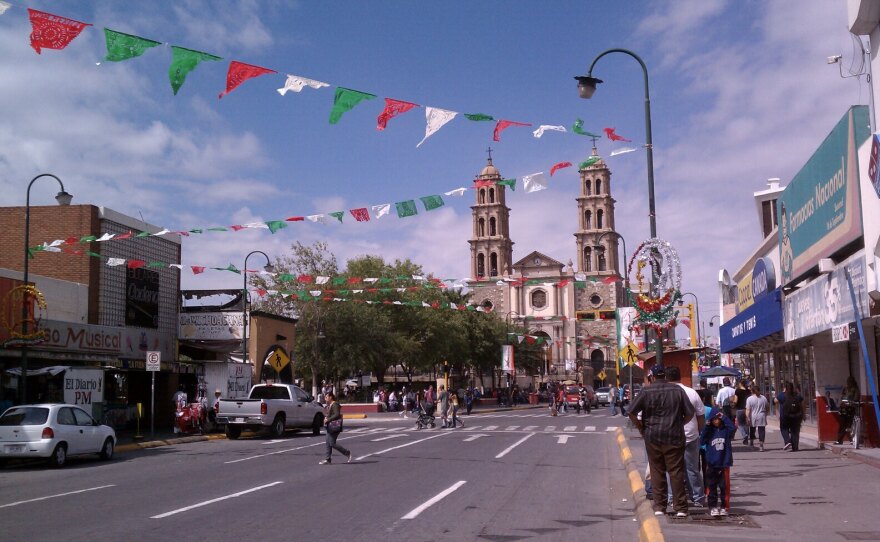There was a time not too long ago when crossing into my sister city in Mexico filled me with anxiety. Often I wouldn't realize the amount of tension I was carrying until I passed under the sign at the international bridge that read, 'Welcome to the United States.' All of a sudden I would feel my muscles relax and a wave of relief rush over me.
Every time I made it back safely was an occasion to count my blessings and feel profoundly grateful.
The drug violence in Ciudad Juarez peaked in 2010. Two powerful drug cartels were locked in a fierce battle to control the city's smuggling routes into the United States. That's when there were on average eight murders per day. Juarez had not experienced such mayhem since the Mexican Revolution a hundred years earlier.
But in 2011 and now 2012 the daily murder rate has dropped to about two per day. Headline grabbing atrocities like the car bomb two years ago or the shooting of an American consulate employee and her husband have become less common. My local law enforcement and judicial sources say the rival drug cartel now has the upper hand.
Still, two killings a day is about twice as many murders as before the current violence started. The city isn't quite back to normal yet, but as someone who has witnessed Juarez in its worst moments, I find myself feeling more at ease when I cross over.
With that delicate sense of calm, comes a desire to do the things I used to do in Juarez before the violence hit. That is, I want go to the movies, have a casual meal in a sit-down restaurant, shop and check out the nightlife.
In fact, a lot of Juarez residents feel the way I do. What once became a ghost town after dark is now pulsing of life. People are packing restaurants, there are outdoor concerts attended by thousands and a whole new set of clubs have taken over a strip that two years ago was reduced to crumbling walls and police tape. For me, it's been really amazing to witness.
On a personal level, watching the Juarez comeback after witnessing its fallout makes me want to be a part of it. The problem is, when I extend the invitation to my friends north of the border, they look at me like I've just asked them to jump into a lava pit.
'Are you crazy?' they say. The look on their face seems to indicate they will never go back to Juarez.
I understand that for someone who stopped going to Juarez four years ago and has been ingesting four years' worth of headlines about massacres and headless corpses, going back all of a sudden may not be so easy. But I don't agree with abandoning the city forever.
Juarez's tragedy in many ways has been to the advantage of El Paso. The thousands of Juarenzes who fled across the border helped keep El Paso's economy above the national depression by investing in local real estate and opening up dozens of new businesses. We owe it to Juarez to go back.
So to all you El Pasoans who have let your passports expire and haven't stepped foot in your sister city for four years, I say, “Basta! Enough!” Have a little faith, work up some courage and cross. Juarez will never be the same without you.







